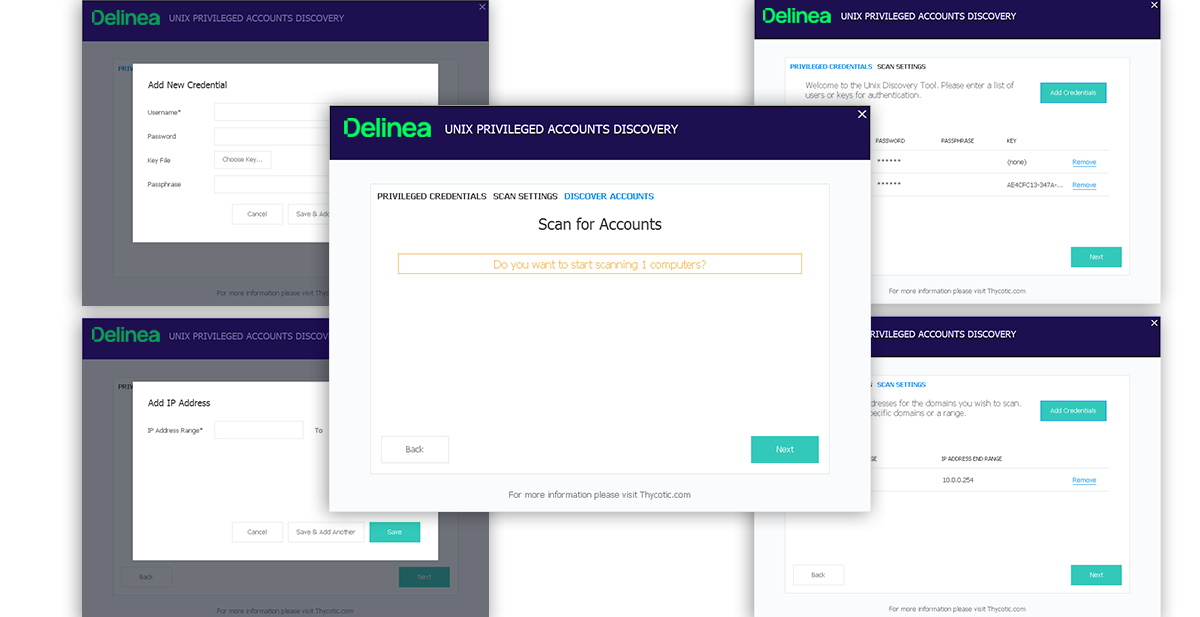FREE TOOL
Unix Privileged Account Discovery Tool
Discover vulnerabilities and reduce your security risk
How well do you know your Unix Accounts?
If you don’t include Unix and Linux in your PAM strategy, you’re leaving open some of the most vulnerable holes in your attack surface. Proactive and ongoing privilege management is essential to ensure consistent security policies across your IT environment and protect Unix/Linux accounts and passwords.
A quick scan with our Unix tool pinpoints Unix/Linux vulnerabilities:
- Unsupported Unix/Linux platforms
- Unexpected Unix/Linux accounts and groups
- Unix/Linux accounts and passwords that never expire
- Aged passwords that have never been rotated
You’ll get a detailed custom report so you can prioritize the next steps to reduce privileged account risk in your Unix/Linux environment.
Register to immediately download the Unix Privileged Account Discovery Tool
- Install the tool, run your scan, and see your results right away.
- Your information is completely private. Delinea has no access to your system credentials or report results.
Reduce Unix and Linux Privileged Account Risk
All Unix and Linux systems suffer from the same weak point—the root account. Root account access provides the highest and broadest level of control (god-like privileges), so protecting root accounts must be a priority.
In a Unix/Linux environment, there are many super users. A super user (such as root) has access to the operating system in an unrestricted form, and therefore has access to all commands, files, directories and resources.
Many organizations have diverse Unix/Linux systems and platforms in use at the same time, increasing the challenge of managing Unix accounts centrally.
The typical approach to Unix/Linux privileged security increases risk and incurs administrative time and cost.
- Every Unix/Linux server has a local database of users and groups. When you have multiple servers, a single user becomes split across them and it’s difficult to maintain visibility and control.
- Using shared accounts to simplify privilege management is a violation of least privilege principles and makes it difficult to know who is using the system and what they’re doing.
- Sudo helps enforce least privilege by temporarily elevating user accounts to have root privileges, but it introduces risk because it’s controlled by local files.
- Additionally, to properly use Sudo you need highly skilled and highly paid system administrators to spend a great deal of time building sudoers files.
Privileged Access Management (PAM) that includes Unix/Linux accounts reduces your organization’s risk and saves management time. The Unix Privileged Account Discovery Tool is the first step to incorporating Unix into a comprehensive PAM strategy.

